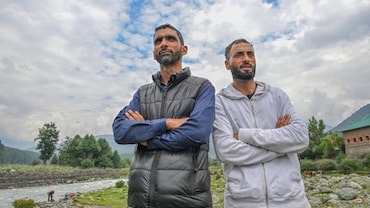The Vigilant Analyst: Dr Chhavi Gandhi Fulfills Her Father's Dream
“It helps to remind yourself that all of this is temporary—one day, it will go away. It has to,” Dr Chhavi Gandhi says determinedly
 Illustration by Keshav Kapil
Illustration by Keshav Kapil
Dr Chhavi Gandhi, 30, a microbiologist and infection-control officer at Bengaluru’s People Tree Hospitals, wanted to be a doctor for as long as she can remember. Her parents were both dedicated physicians in Panipat, Haryana. “My father is no more, but he has always been my inspiration. It was his dream that I become a doctor,” says Gandhi.
Her father would have been truly proud of her today if he was around to witness her dedicated efforts in the thick of the COVID-19 pandemic. She toils daily, for hours on end, initiating surveillance for infection cases, analyzing data and working with internal teams to determine the course of treatment. “We know what to do when a patient tests negative or positive, but the in-between stage—its uncertainty—is scary.” To convince a seemingly healthy patient, who walks in with a history of travel to get the test, is tricky. “Also, dealing with a respiratory patient who has tested negative once, but positive on repeat tests is tough. All of this takes a lot of patience and compassion,” she adds.
“Our virology books suggest that pandemics are as unavoidable and as hard a truth as death. Even so, it gets overwhelming, especially when the necessary resources are lacking,” Gandhi says. She does not let herself feel burdened for more than a few minutes, however, trained as she is to stay calm, and think of solutions. “I think I am dealing with the stress marvellously,” she says, breaking into a small laugh. Though work is hectic, Gandhi feels there is clarity and control, pointing to her hospital’s support and improved all-round preparedness. “It helps to remind yourself that all of this is temporary—one day, it will go away. It has to,” she says determinedly. With a job that is so high-risk, Gandhi has been finding comfort in her family. “After a long day at work, I come home and cook, it’s like productive therapy for me.”
Gandhi explains how respiratory pandemics are the most dangerous ones that health-care workers, scientists and epidemiologists must deal with. The relative novelty and oddity about this virus doesn’t help either. “But I am backed by a very, very supportive husband and family,” she says. Her voice warms with pride, while talking about her husband, Mayank Juneja. “It was difficult for him at first, but he has adjusted much better after I explained the logic behind the isolation and protocols.” Most days when Gandhi returns home, she finds hot food laid out on the table. “He takes care of these things. It’s been so much easier, because we’ve been sharing the load,” she says.
Acknowledging reports about medical professionals being targeted with hostility and violence, Gandhi shines with empathy. “I stand by all the health-care workers who’ve had to endure that kind of treatment. But, I know where it comes from. People need the assurance that they will be fine. As medical professionals with the required knowledge and skills, it’s not right that we don’t put them to use.” But health workers deserve better work conditions too, she insists. “We need resource streamlining, not just for personal protection equipment (PPE), but for everyday essentials as well. Also, we need to increase community surveillance. The data won’t be truly authentic if we don’t include asymptomatic carriers.”
As the pandemic continues unabated, Gandhi is faced with the fragility of human life now more than ever, and appreciates how rewarding a sense of community can be. “The hierarchy in a hospital notwithstanding, we all work as a unit in a crisis like this. From management, doctors, nurses, support and security staff—everyone plays a major role at every step. We are working as a team and always look out for our patients, no matter what.”
To read Dr Zahid Abdul Majeed's story, click here.






